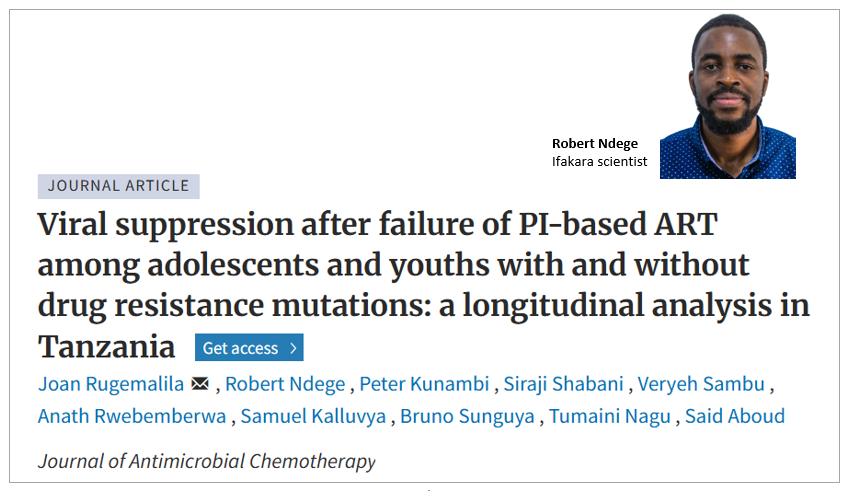
HIV: Scientists urge better care for adolescents and youths in Tanzania

Scientists from four major health institutions in Tanzania are calling for stronger HIV care efforts to help adolescents and youth achieve viral suppression when first-line treatment fails.
In a study published on May 2, 2025, in the Journal of Antimicrobial Chemotherapy, experts from Muhimbili University of Health and Allied Sciences (MUHAS), Ifakara Health Institute, the National AIDS Control Program, and the Catholic University of Health and Allied Sciences highlight the need for regular viral load monitoring, better adherence support, and routine drug resistance testing to improve outcomes for young patients.
Hundreds of youths with drug failure examined
The study examined outcomes among 147 adolescents and youths aged 10 to 24 with failure of protease inhibitor (PI)-based ART. The participants were followed for 12 months between 2020 and 2022 to assess their ability to suppress the virus.
Call for stronger monitoring and support systems
“People living with HIV who fail first-line ART are at increased risk of failing subsequent treatments,” the study authors warned. They underline the need for optimal viral load monitoring, adherence intensification and routine drug resistance testing as key strategies to improve VS among young people.
Collaborative national research effort
This study was carried out as part of the national third-line ART cohort through a collaborative effort involving several health institutions in Tanzania. It was led by Joan Rugemalila from the MUHAS, with key contributions from experts at the Ifakara Health Institute—including Dr. Robert Ndege, a clinician at the Chronic Diseases Clinic of Ifakara—as well as researchers from the National AIDS Control Program and the Catholic University of Health and Allied Sciences.
Towards achieving national HIV goals
As Tanzania works toward national and global HIV targets, the study underscores that more tailored support for young people living with HIV is key to long-term treatment success.
Read the publication here.
